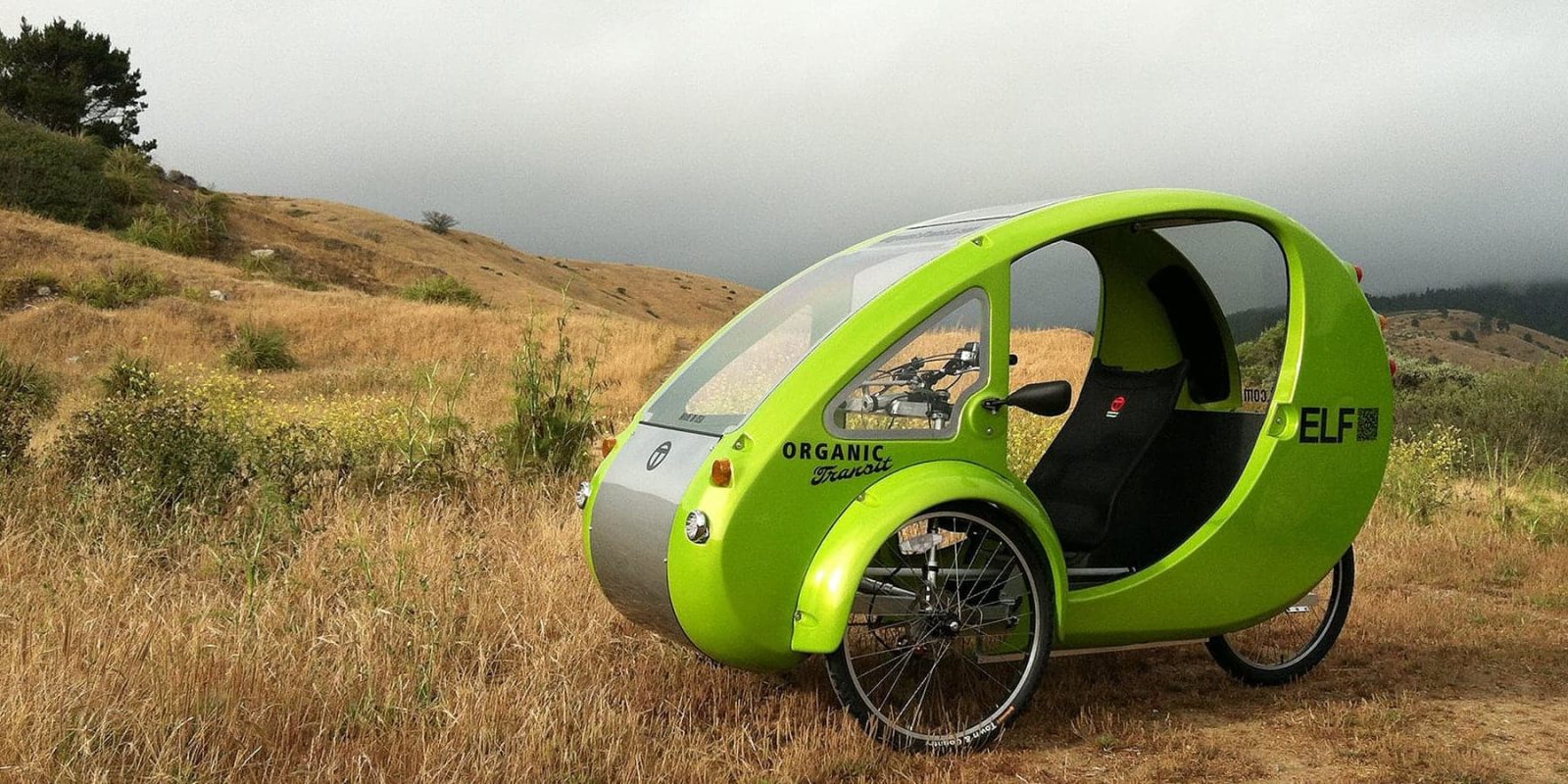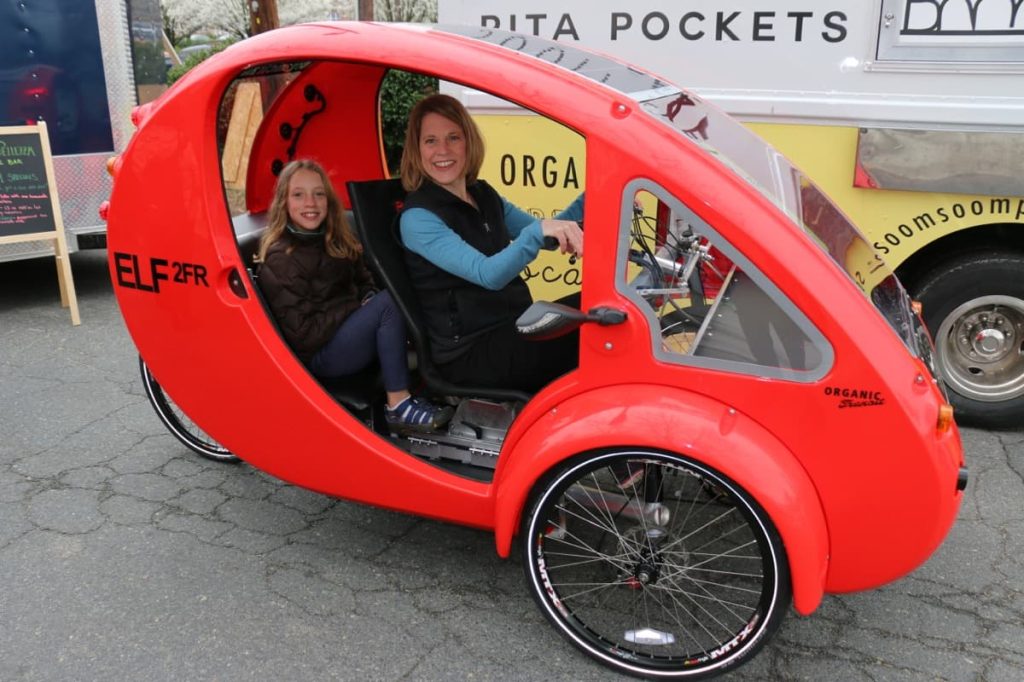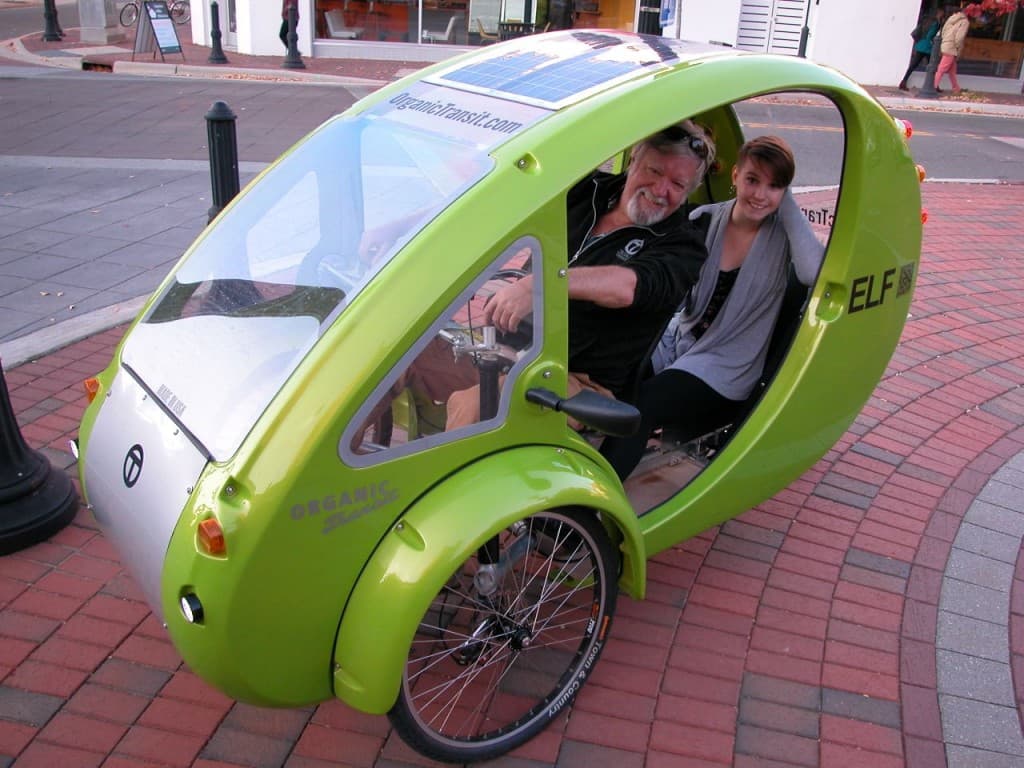
Remember the ELF? It was one of the first ever electric bike cars to actually reach production. Nearly a thousand of the hand-built three-wheeled electric vehicles were delivered between 2013 and 2019, when an unfortunate bankruptcy seemed to mark a regrettable end to the world’s first production electric bike car.
But just like any good comeback story, it turned out that the last chapter had yet to be written.
The world of micromobility has long been a wild west of innovative designs, spanning everything from e-bikes and e-scooters to self-balancing electric unicycles and more. The proliferation of small, inexpensive electric motors and batteries has allowed companies to experiment with new designs without the restraints of the same massively capital-intensive development cycles found in the automotive industry.
That’s exactly how the ELF got its start, with inventor Rob Cotter founding the company Organic Transit to produce and deliver the three-wheeled vehicle.
With a top speed of either 20 or 28 mph (32 or 48 km/h) and a tadpole tricycle design featuring two front wheels, the ELF qualified as an electric bicycle in most of the US. That meant it could use existing bicycle infrastructure like bike lanes and did not require a license or insurance to operate.
Unlike most e-bikes though, the ELF was enclosed to create a weather-protected ride and could easily fit extra passengers in the rear. While it could be charged from a standard wall outlet like a typical electric bike, a roof-mounted 120W solar panel also provided a substantial amount of charge, often enough to operate completely off-grid in areas with sufficient sun exposure.
Safety reports were good, too. Organic Transit claimed that in around 25 accident reports, including collisions with cars at considerable speed, there were no reports of deaths or serious injuries.

Despite its innovative design and hundreds of deliveries, the ELF ceased production in 2019 when Organic Transit’s bankruptcy forced a sale to the oil company PetroSun. The new owner allowed the vehicle to languish, never picking up the design or returning to production.
But this year the vehicle’s original inventor Rob Cotter recently purchased back the rights from Petrosun, starting a new company known as Environmental Transit Authority (ETA).
According to Axios, Cotter is now raising seed funding to get production back online and hopes to exceed the previous rate of ELF production at Organic Transit. He expects the retail price of the new ELF to be around US $7,500, with higher-end models costing up to US $12,000.
These types of bike-cars and velomobiles are still rarities in the larger micromobility market, owing to their custom designs and more intricate production methods. Not only do they use less standard recumbent trike designs that require more specialized (i.e. expensive) components, but their enclosed bodies are also more difficult to produce, further increasing production costs.
But if Cotter and ETA can find the funding to increase production rates, and can find enough customers to sustain that production, perhaps this second go around will see smoother paths ahead.
I’d sure ride one!

images via: Organictransit.com
